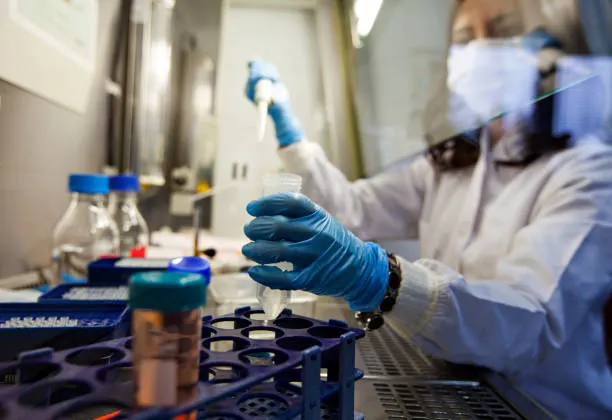The Future of Healthcare is Personal
Imagine a world where doctors don’t prescribe the same medicine to everyone with the same illness. Instead, treatments are tailored specifically to your unique genetic makeup. This is the power of personalized medicine, driven by genetic testing. In recent years, breakthroughs in genomics have made it possible to identify how individuals respond to drugs, detect genetic diseases early, and even prevent health issues before they arise. But how does it work, and what does it mean for the future of healthcare?
What is Personalized Medicine?
Personalized medicine, also known as precision medicine, is an innovative approach that uses a person’s genetic information to guide medical decisions. Unlike traditional medicine, which follows a one-size-fits-all model, personalized medicine considers genetic variations, lifestyle, and environment to offer customized treatments.

Key Features of Personalized Medicine:
- Targeted Treatments: Medicines are designed to work best for a person’s specific genetic makeup.
- Disease Prevention: Genetic testing helps identify risks before symptoms appear.
- Fewer Side Effects: Treatments are chosen based on how your body metabolizes drugs, reducing adverse reactions.
- Improved Drug Effectiveness: Some medications work differently for different people; genetic testing helps doctors select the best one.
The Role of Genetic Testing
Genetic testing is the backbone of personalized medicine. It involves analyzing a person’s DNA to detect changes, mutations, or variations that may impact health. These tests provide crucial insights that help in diagnosing diseases, determining risk factors, and customizing treatments.
Types of Genetic Testing:
- Diagnostic Testing: Used to confirm or rule out a suspected genetic disorder.
- Predictive and Pre-symptomatic Testing: Determines a person’s risk for developing a disease before symptoms appear (e.g., BRCA1 and BRCA2 for breast cancer risk).
- Pharmacogenomics Testing: Studies how genes affect a person’s response to drugs, helping doctors prescribe the most effective medication.
- Carrier Testing: Helps prospective parents determine if they carry genes for inherited conditions.
- Newborn Screening: Conducted shortly after birth to detect genetic disorders that can be treated early.

How Genetic Testing Works
The process of genetic testing involves several steps:
- Sample Collection: A small sample of blood, saliva, or tissue is taken.
- DNA Analysis: The sample is analyzed in a laboratory using advanced sequencing technology.
- Results Interpretation: Geneticists and doctors review the findings to determine their significance.
- Medical Decisions: Based on the results, doctors can recommend specific treatments or lifestyle changes.
Benefits of Personalized Medicine and Genetic Testing
1. Early Detection and Prevention
- Identifies disease risks before symptoms develop.
- Enables early interventions to prevent diseases.
- Helps create lifestyle plans to reduce risks.
2. Precision Treatment Plans
- Personalized medication prescriptions improve effectiveness.
- Reduces trial-and-error prescribing.
- Lowers the risk of drug-related complications.
3. Better Cancer Treatments
- Genetic tests help identify specific cancer mutations.
- Allows for targeted therapies rather than general chemotherapy.
- Reduces unnecessary treatments and side effects.
4. Cost-Effective Healthcare
- Preventing diseases is cheaper than treating advanced conditions.
- Reduces hospital visits and medication costs.

Challenges and Ethical Concerns
Despite its advantages, personalized medicine faces several challenges.
1. Cost and Accessibility
- Genetic tests can be expensive and are not always covered by insurance.
- Advanced treatments may not be available in all regions.
2. Privacy and Data Security
- Storing genetic data raises privacy concerns.
- Risk of genetic information misuse by insurers or employers.
3. Ethical Dilemmas
- Who should have access to genetic information?
- How should unexpected findings (e.g., discovering a risk for an unrelated disease) be handled?
The Future of Personalized Medicine
The field of personalized medicine is rapidly advancing, with several promising developments on the horizon.
- AI and Big Data in Genomics: AI-driven analysis helps process vast amounts of genetic data efficiently.
- CRISPR and Gene Editing: Gene-editing technology has the potential to correct genetic disorders.
- Expansion of Pharmacogenomics: More drugs will be tailored based on genetic responses.
- Integration with Wearable Tech: Devices like smartwatches may help track real-time health data for personalized treatments.
Conclusion: A New Era of Healthcare
Personalized medicine and genetic testing are revolutionizing healthcare, making treatments more effective, reducing risks, and improving patient outcomes. While challenges remain, the benefits far outweigh the concerns. As technology advances, genetic-based treatments will become more accessible, offering a future where medicine is truly tailored to each individual.
The Surprising Power of Nostalgia Marketing: Why It Works So Well!






